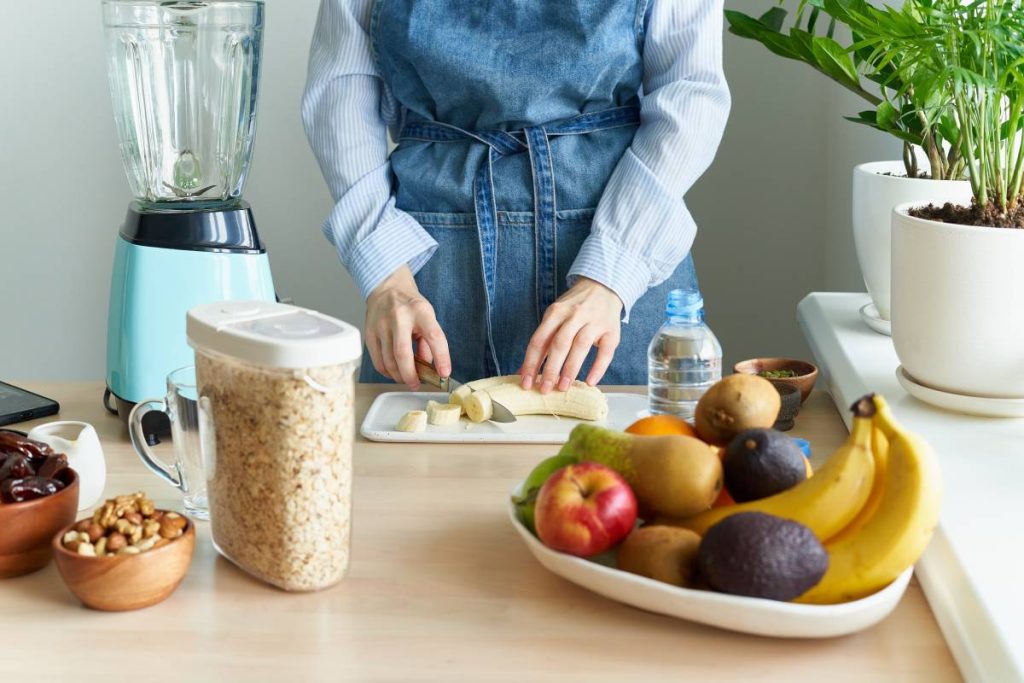Looking to lose weight? Consider a plant-based diet. It’s popular for various reasons, like its positive environmental impact. But how much weight can you actually lose in a week on this diet? Let’s explore that question and discuss a study’s findings.
Firstly, what’s a plant-based diet? It’s all about eating mainly plant foods and cutting out animal products—no meat, poultry, fish, eggs, or dairy. This type of diet is known for promoting weight loss and overall health improvement. There are different versions, with the most common being the vegan diet, where you avoid all animal products, and the vegetarian diet, which excludes meat, poultry, and fish but may include eggs and dairy.
You might read: Average Cost Per Head At A Corporate Event in Australia?
Why go plant-based?
Well, there are several health benefits:
- Reduced risk of heart disease and stroke.
- Lower risk of certain cancers.
- Decreased risk of type 2 diabetes.
- Lower risk of obesity and chronic malnutrition.
- Increased intake of essential nutrients like potassium, magnesium, and fibre.
- More antioxidants to protect against diseases such as heart disease, cancer, and Alzheimer’s.
- Elimination of environmental pollutants that can harm health.
In a nutshell, a plant-based diet isn’t just about weight loss; it’s a holistic approach to better health with a positive impact on the environment.

How Many Calories Can You Burn with a Plant-Based Diet?
Losing weight on a plant-based diet is achievable if you follow the right guidelines. Instead of processed foods and meat, focus on fruits, vegetables, and whole grains. According to a study in The Journal of Nutrition, those on a plant-based diet lost more weight and body fat compared to those on a traditional Western diet. Depending on your activity level, you could burn between 600 to 1,200 calories daily on this diet.
This number varies based on factors like your sex, age, and muscle mass. To achieve this calorie burn, make regular exercise a priority and closely monitor your calorie intake.
How to Create a Vegan Meal Plan?
If you’re keen on making a substantial dietary change for weight loss, consider a plant-based diet. This involves consuming plant-derived foods like vegetables, fruits, grains, legumes, nuts, and seeds instead of animal products.
Crafting a vegan meal plan can be approached in various ways. Prioritize meals filled with veggies, fruits, and whole grains. Ensure your daily intake includes generous portions of nuts, seeds, beans, and lentils. Be calorie-conscious, with a focus on deriving the majority of your calories from healthy sources like fruits and vegetables.
Another strategy for a nutritious vegan meal plan is to integrate plant-based proteins into your meals. Tofu, tempeh, seitan, and soy-based products are excellent choices. Explore plant-based dairy alternatives like avocado, soy milk, nut milks, and coconut milk. For snacks or desserts, try homemade vegan treats such as fruit leathers or bars. This way, you can enjoy a satisfying and health-conscious plant-based diet.

What Foods are Included in a Plant-Based Diet?
A plant-based diet offers the nutrients your body needs while aiding weight loss by providing fewer calories than animal-based foods. Here are some key components of a plant-based diet:
- Vegetables: Incorporate vegetables into every meal, whether it’s breakfast, lunch, or dinner. Popular choices include broccoli, Brussels sprouts, cauliflower, turnips, kale, and zucchini.
- Fruits: Enjoy fruits throughout the day as part of your meals or snacks. Options include applesauce, bananas, berries, cantaloupe, grapefruit juice, honeydew melon, kiwi fruit, lemon juice, mangoes, orange juice, papaya, pineapple, and grapes.
- Grains: Include grains in your meals, such as quinoa, oats, bulgur, couscous, rice, millet, and sorghum, for breakfast, lunch, or dinner.
- Legumes: Opt for legumes like black beans, chickpeas, lentils, split peas, and soybeans for added protein.
- Seeds: Include seeds like chia seeds, hemp seeds, and pumpkin seeds for nutritional benefits.
What Foods to Avoid?
Steer clear of certain foods:
- Processed Foods: These often contain high levels of sugar and unhealthy additives.
- Sugary Drinks: Beverages with excess calories and sugar can contribute to weight gain and obesity.
- Large Portions of High-Fat Foods: Consuming hefty portions of high-fat foods may increase the risk of heart disease, stroke, and other chronic illnesses.
In Summary
Choosing a plant-based diet not only helps with weight loss due to nutrient-packed, lower-calorie foods but also comes with numerous health advantages.
Avoiding processed foods, sugary drinks, and large portions of high-fat foods contributes to overall well-being. Whether you’re aiming to lose weight or simply want to lead a healthier life, a plant-based diet offers a sustainable and nutritious path. If you’re interested in gradually and safely shedding pounds while experiencing the benefits of improved health, consider transitioning to a plant-based lifestyle.
Explore the wealth of plant-based options and discover a fulfilling and wholesome approach to nourishing your body.



